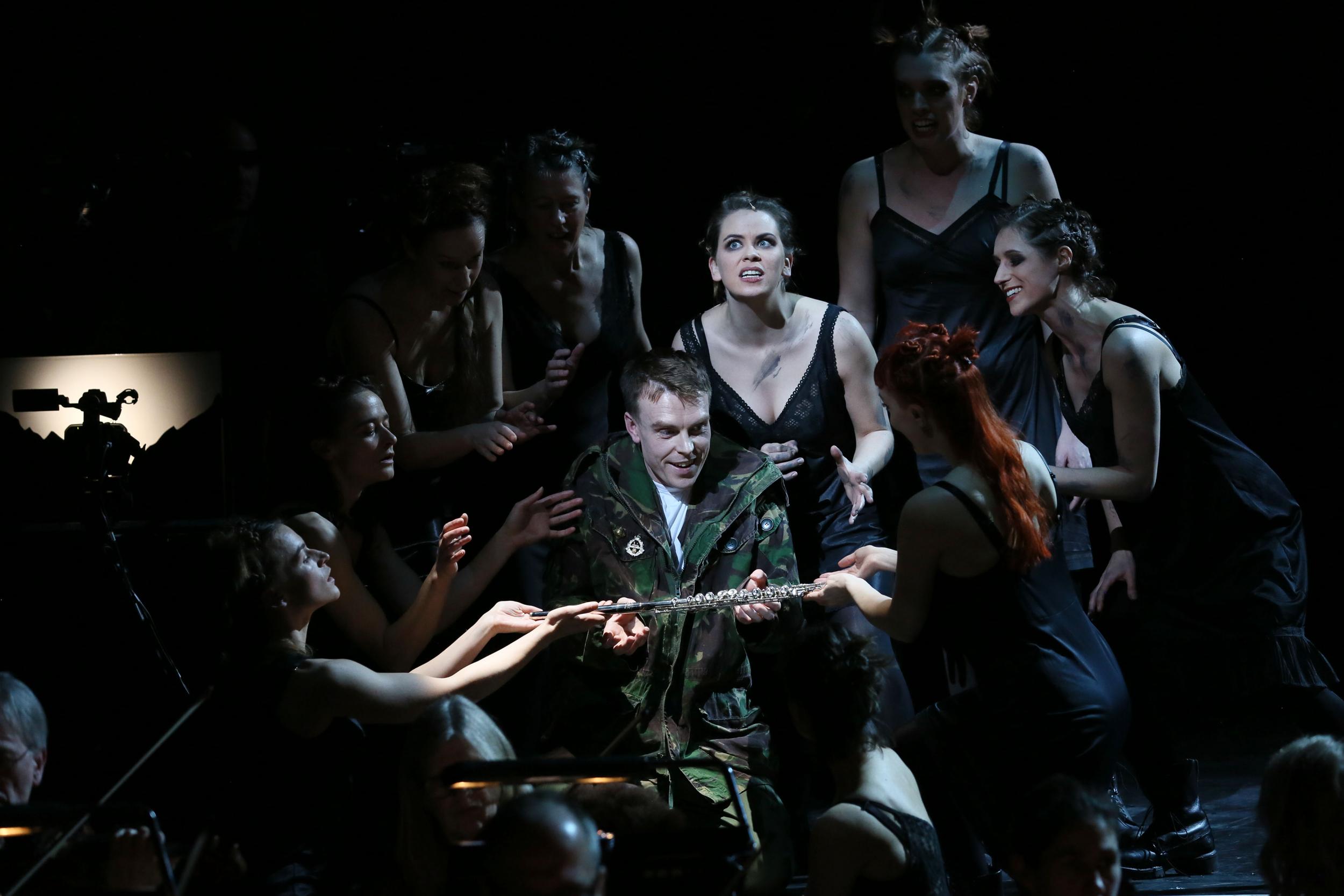The Magic Flute review, London Coliseum: Extraordinary revival conjures bond between performers and audience
With this new revival the existential threat comes from Brexit

Like Ko-Ko’s “little list” in The Mikado, there’s a moment in The Magic Flute which seems designed for topical allusion. As the Freemasons prepare to choose their new leader “in this hour of crisis”, Sarastro urges them to take their decision “with the utmost gravity” – and in Simon McBurney’s production these words are addressed, with heavy emphasis, to the audience. In the last revival they chimed with the fact that ENO was surrounded by enemies trying to destroy the company; with this new revival the existential threat comes from Brexit.
People love this extraordinary production, and particularly the bond struck up in it between performers and audience. This is not just because the huge cast periodically spills over into the auditorium, or because the orchestra is woven into the action; it’s more because the whole evening becomes a gigantic game of perception and illusion, which begins with the chalk-drawn imagery morphing into 3D reality on several levels at once – we might be watching a work being created on the spot.
With the sound-effects artist presiding wittily in her kitchenette, and with a flock of doves suggested by fluttering sheets of paper, the anarchic imagination implied by the score finds its complement in this staging enriched by a troupe of Complicité actors. The floating and tilting platform on which the singers perilously perch may be way too busy, but it does permit some startling moments, and helps justify the pervasive references to Shakespeare’s Tempest.
Julia Bauer’s old crone Queen of the Night may lack power and presence, but Lucy Crowe as her feisty daughter sings gloriously, her despairing aria in act two being a marvel of delicately inflected artistry; Rupert Charlesworth, as Tamino, delivers the purest and most unforced lyricism. And while the Three Ladies constitute a highly accomplished triple act, the three boys really do come over as infant ancients. Though his routines are at times overdone and unfunny, Thomas Oliemans’ Papageno is suitably irrepressible; Jonathan Lemalu brings ironical gravitas to the Speaker, and Brindley Sherratt makes a splendidly dominating Sarastro. Flautist Claire Wickes, looking almost like Pamina’s double, takes her onstage solos with panache.
To 6 April, 0333 700 8800
Subscribe to Independent Premium to bookmark this article
Want to bookmark your favourite articles and stories to read or reference later? Start your Independent Premium subscription today.

Join our commenting forum
Join thought-provoking conversations, follow other Independent readers and see their replies